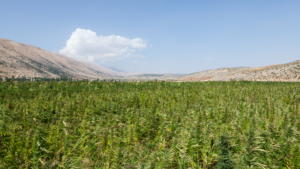CBD is in the spotlight right now! It all seemed to happen so quickly. So what’s the hype all about?
There are claims it can do everything from treating insomnia to reducing the appearance of wrinkles – and a multitude of things in between. CBD is poised to be the next game-changing health product in an industry that is booming across the world.
Is CBD a miracle molecule or is it just another health trend with an expiry date? Let’s take a brief look at the science behind it.
So What Exactly Is CBD?
CBD is short for cannabidiol. This is a chemical compound found in the cannabis Sativa plant genome. CBD is extracted from cannabis flowers, and often mixed with a carrier oil to increase its bioavailability when consumed by humans.
The human body has two cannabinoid receptors, CBD1 and CBD2, most of which are found in the brain. The CBD1 receptors in the brain deal with things like pain, emotions, appetite and mood. CBD2 receptors are found in the immune system and are responsible for pain and inflammation. Understanding this is important because CBD oil stimulates the body to use more of its own cannabinoids. This can help regulate brain and bodily functions, ease pain, and reduce inflammation in areas that CBD1 and CBD2 receptors are found.
Will CBD Make You High?
There are so many misconceptions about CBD. Many people confuse CBD for THC, or believe that because it comes from the same plants as marijuana that it must be psychoactive.
This is far from the truth!
CBD is not a psychoactive substance, which means that it cannot make you high like THC. Generally, Hemp only contains levels of less than 0.3% of THC. And while the marijuana has higher levels of THC, it is only legal to sell CBD oil with levels of THC lower than 0.3%. Even then, CBD can be isolated from flowers that contain THC. So when you’re buying CBD, don’t expect to get high
The psychoactive effects of THC generally only occur when concentrations are higher than 7%, so this level of THC is too low to give you any feeling of being high.
THC vs. CBD
Both THC and CBD have the same molecular structure but are arranged slightly differently, which results in different interactions with the body’s endocannabinoid system. THC binds with the CBD1 receptors in the brain, which results in the feeling of being high. On the other hand, CBD binds weakly with CBD1 receptors (if at all). This is why CBD is not psychoactive.
Another key difference in effect is that CBD has virtually no side effects, while THC can cause dry mouth, red eyes, increased heart rate, memory loss and slower reaction times. That’s not to say THC can’t be medicinal, but as you probably know, it can be highly intoxicating.
Generally, high-THC products are the recreational users choice, and high-CBD products the medical users choice. A lot of people don’t want to get high!
Is CBD Proven To Cure Medical Conditions?
Some huge claims are being made about the healing properties of CBD oil but how much evidence do we have to prove these claims? While research on the effects of CBD oil is still in its infancy, there have been studies done to determine whether CBD can be used to treat medical conditions such as epilepsy, anxiety and cancer.
Epilepsy
There is strong scientific evidence for CBD’s effectiveness in treating epilepsy. There are many studies which show that CBD was able to reduce or completely stop seizures in patients. In June 2018 the FDA in the United States approved Epidiolex, which is the first prescribed epilepsy medication which contains CBD.
Although this is more anecdotal evidence, you can also look on YouTube and find videos of seizures stopping almost immediately after high CBD tinctures were administered.
Anxiety
There is growing evidence to suggest that CBD can effectively relieve many symptoms of anxiety. A 2015 analysis of several studies found that CBD can help treat or provide relief for many forms of anxiety including PTSD, social anxiety, OCD, panic disorder and generalised anxiety disorder.
Despite seeing many positive outcomes, little research on what effects CBD use can have when treating these conditions with it in the long term. While CBD will not cure the root causes of why someone has anxiety, it is certainly a worthy alternative to mainstream anti-anxiety drugs.
Cancer
CBD is by no means a cure for cancer, but it can undoubtedly be used to help cancer patients manage symptoms and side effects of their medical procedures. This can have significant impacts on their comfort and quality of life, which can significantly affect outcomes.
There are also now more studies being done to see how CBD can be used to treat cancer. Research is in the preliminary stages, but so far the results look promising. There is evidence to suggest that CBD may reduce tumour growth and help to improve the effectiveness of other drugs used to treat cancer. Other studies have also demonstrated that CBD can reduce breast cancer cell proliferation, inhibit the spread of colorectal cancer cells, and reduce the risk of bladder cancer.
CBD has the potential to be an incredibly powerful treatment for many kinds of illnesses.
What is the legal status of CBD in New Zealand?
Around the world the laws are loosening up around CBD making it much more accessible to everyone. Countries like USA, Canada and the UK have made CBD readily available for people to purchase and there are many businesses now making CBD oils and other products.
However, the laws in New Zealand are lagging behind.
In 2017 CBD was legalised in New Zealand for medical use. This means you must have a medical prescription and can only fill the prescription at pharmacies. You cannot import CBD from overseas, even if you have a prescription. This makes sourcing CBD very expensive and it can be difficult to find a doctor who is willing to write you a prescription.
THC must not exceed 2% of total CBD for it to be considered legal in New Zealand.
If a product contains CBD but does not meet the definition of a CBD product, it is a ‘controlled drug’ and is subject to the regulatory requirements of the Misuse of Drugs Act.
There is a Cannabis referendum being held in September 2020 where we will vote for the use of THC & CBD for recreational use.
To Conclude…
CBD oil has the potential to improve the quality of life for almost everyone on the planet. What was once just speculation and ‘hippy nonsense’ is now showing scientific results, and backing up the claims made by producers and users. With little-to-no side effects, potential benefits far outweigh any costs. While CBD oil is a little difficult to get your hands on now in New Zealand, it is likely that the government will soon follow the lead of other countries and decriminalise CBD making it readily available for Australian consumer





